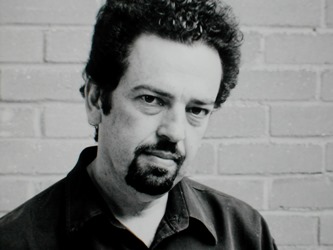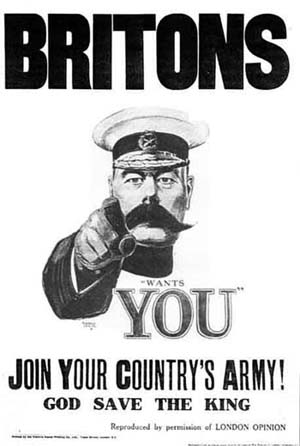A guestpost by Stephen Armstrong, author of Road to Wigan Pier Revisited. Stephen will join our panel for Poverty then and now; Orwell and his successors at Letchworth Festival Thursday 20th September. I don’t think I truly realised the dangers of revisiting Orwell’s The Road to Wigan Pier until I met a former steelworker in Sheffield – a burly man with muscles that clenched like anacondas writhing beneath his skin and who boasted two large tattoos, one on each brawny forearm. On the left he had the white rose of Yorkshire. On the right he had George Orwell’s face. ‘You’d better not fuck this up,’ he warned at the end of a long conversation, pointing at my chest with a finger that looked like it had survived a forge or two. I nodded, thanked him and started to worry. In the south of England telling people I was planning to revisit Orwell’s north west 75 years on, to see what had changed and how the grandchildren of those he met were doing, I found they all thought it was a great idea – up to a point. ‘I mean, there’s no poverty really any more,’ they’d say. ‘So what are you going to write about? Them having last years Nikes?’ In the north, however, people would pause and look at me for a second before replying – a pause that said ‘really? Are you sure?’ in much the same way you might look at a tone deaf relative stepping up to the karaoke stand or nightclub bouncer deciding to fight the Taleban with a pointy stick. If you head beyond Letchworth you find The Road to Wigan Pier joins 1984 and Animal Farm in Orwell’s holy triptych of rebellion. Would you rewrite 1984? Then why dick around with Road, middle class boy? ‘It’s been done before you know,’ a quiet, watchful former shop steward in Liverpool warned me. Huddled in a messy, semi derelict office building near the docks, he crunched data and raised money for old men seeking compensation for industrial injuries from twenty years ago. ‘I know – I’ve read Bea Campbell,’ I nodded, and he relaxed a little. At least he was in favour of the original and welcomed the idea of an update. In Wigan, however, the careful pause was usually followed by a couple of pointers as to where Orwell got things wrong. Orwell focussed on the worst of the worst – a handful of streets, some already scheduled for demolition. They think the tripe shop is half fiction and they’re keen to say how brief his stay was, how he never went back and how he didn’t send a copy of the book to anyone who helped him. ‘Well, he did head off to fight the Spanish Civil War,’ I offered a couple of times – which wasn’t a smart move. ‘So where are you off to once you’ve finished Stephen?’ one women shot back. ‘Afghanistan? My nephew’s out there, you can say hello to him.’ The message was pretty clear – you’re writing about our lives. If you’re doing it to further your career, we’d prefer it if you left right now. If not, you’d better not fuck this up. I’m certain of only three things – death, taxes and the fact that I will never come close to Orwell as a writer or as a man. If there is one area I could compare myself with him, however, it’s in the privilege of my background. I have none of Orwell’s talent. We do, however, have our class in common. He described his family as ‘lower-upper-middle-class.’ I’d describe mine as ‘upper-lower-middle-class.’ My parents were the first in their family line to attend university, I went to a good state school and had the government pay my university fees. We were the product of the post-war welfare state. Free schools, free healthcare – even, briefly, free milk. For my parents it was possible to imagine progress as a given. When Orwell travelled north he did so initially for money – it was a well-paid commission. What he found changed his perspective and helped crystallise his political beliefs. Of course you don’t get that kind of advance these days so I barely covered my travel expenses, but I did begin with a similar motive – I thought it would be interesting, almost a high concept book. The more I saw, the angrier I became – it felt as if the children of those Orwell had met had won opportunities their parents could never have imagined – helped, in part, by Orwell’s writing – but these were being snatched away by people who had never known hardship or hard work. In Wigan Orwell met three people whose names we know – Sid Smith, a paperboy; Gerry Kennon, a union organiser and Jim Hammond, an unemployed blacklisted coal miner. When I went back, Gerry’s son Harry was gravely ill and sadly died last autumn. I did meet Sid’s son Trevor, who told me how his dad had built the largest independent retailer in the North West – Smiths Bookshop – and how the family had sold at the peak of the noughties boom. He has a large house on the edge of town overlooking fields and rolling hills. I also met Jim Hammond’s son Tony – who’s a retired judge. Imagine that – blacklisted coalminer to retired judge in one generation. It’s the British Dream – not to be a millionaire but to see the family do OK and your kids get a better chance than you. Trevor and Tony’s grandchildren now face zero hours contracts, benefit sanctions, agency jobs at food plants sweeping dirty brown water from freezer floors and a gradual destruction of the health and welfare services that kept their grandparents, parents and the like of me and my family alive. At the same time, the left has quietly slipped away from places like Speke and Scholes in Wigan, where Orwell stayed – it prefers to spend its time calling for Blair to be tried as a war criminal. And yet there are acts of violence committed by that government that carry on bullying the grandchildren of Orwell’s people without comment or opposition. The benefit sanctions ramped up by this coalition began in 2000. If you’re late signing on, miss a job interview, misunderstand a form, are late for enforced voluntary work, are deemed healthy by an ATOS computer even though your GP knows you’re on chemotherapy you can have all of your benefits taken away as a punishment. You might get a crisis loan – £28 a week, not even enough to keep a young homeless girl safe from harm. You might not – in which case you’re reliant on the charity of neighbours, churches, mosques and what few UK poverty organisations still have money to help you. The Trussell Trust provides the vast majority of the UK’s food banks. Right now they’re opening two food banks a week all over the country. The Trust’s Coventry food bank opened in 2011 and in its first year fed 7,000 people. The Salisbury food bank fed 4,000 last year, handing out parcels containing roughly three days’ worth of tinned or dry food – the charity calls it ‘a nutritionally balanced, non-perishable ration’. Typically a family with children will get cereal, pasta, tinned meat and veg, cans of tuna, tinned fruit, rice pudding, biscuits, tea, coffee, juice and UHT milk. It’s all put together with the help of nutritionists – but there’s no fresh fruit as the charity is supplied by donations and needs food that will keep. The Trust is a Christian organisation and runs its food banks from churches. In Speke, Liverpool – a garden estate on the fringe of the city built near factories that have long since closed – there are no churches for a couple of miles. The bus fare to the nearest food bank is £4 return. These are people so poor they can’t afford food – if they had £4 they’d eat better. So they walk. But mothers can’t walk, pensioners can’t walk, the ill and infirm can’t walk so the local Citizens Advice Bureau – lead by the redoubtable Eileen Devaney – pay some bus fares out of their tea money. They’re holding a 70s disco on September 14th to raise a little more money – money to pay for the bus fares for people who have no food. Orwell visited political meetings, debated the merits of opposing political ideas, saw violent clashes over intense belief and was helped from city to city by a network of activists and organisers who clubbed together to defend their neighbours and themselves. He found solidarity and a rich working class culture that seemed in some ways superior to his Eton education. Today there are isolated community centres on desolate ground, held together by older working class women who have no time for anything beyond permanent crisis management. In Scholes I met Barbara Nettleton, who lives a few hundred yards along Darlington Street from the site of Orwell’s tripe shop. She runs a community centre and art club, giving Manga classes to school kids and guiding them towards courses in graphic design. She receives no regular funding, but pulls every string and every trick she can to keep hope and beauty alive. There’s art exhibitions every autumn – it’s like the return of the Pitmen Painters – and small social enterprises offer handmade rafts and plumbing services. Like Eileen Devaney, Barbara will not be cowed – governments, councillors, hoodies from the estates, liberal do gooders like me, we all get short shrift. In the end, she cut me some slack after I agreed to help teach writing classes to 14 year olds from rough comprehensives so they could think about journalism, novels or scripts as well as call centres and food plants. Will Self, amazingly, agreed to help, as did Shameless writer and producer Ed McCardie. I like to think that Orwell, if he’d met her and if there hadn’t been a war, would have done something similar. Because in putting down his pen and reaching for a rifle he showed me, at least, that writing isn’t enough. Sometimes writers have to stop observing and actually do something. It’s not enough, but it’s a start. You can sign up to our newsletter. If you’ve got any suggestions about our website(s), we’d love to hear from you – email us on katriona.lewis@mediastandardstrust.org. You can also follow us on Twitter and like us on Facebook.






